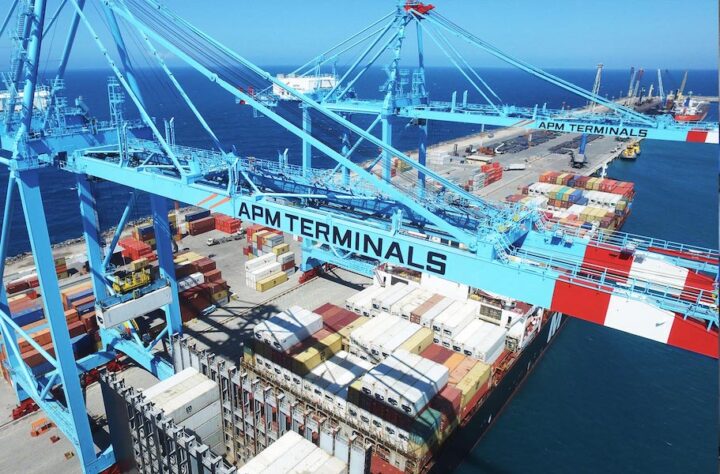A leading terminal operator in Nigeria has launched a groundbreaking empowerment programme tailored exclusively for women in its host communities, aiming to boost economic inclusion and foster sustainable livelihoods. The initiative, which blends skill development, financial literacy, and mentorship, is designed to unearth female entrepreneurship potential and deliver long-term impact across diverse sectors.
At the heart of the programme is a holistic approach to uplift women’s economic standing. From vocational training in trades such as tailoring, food processing, digital literacy, and cosmetology to entrepreneurial guidance, the programme covers key areas that equip participants for self-employment and small business success. Beyond technical training, participants receive mentorship from women operating successfully in logistics, retail, and community services—helping them navigate business startup challenges in local markets.

Organizers note that women in host communities often face structural barriers: limited access to education, persistent gender norms, inadequate financial resources, and low digital literacy. The terminal operator aims to disrupt these trends by providing a platform for upskilling that includes structured training modules, seed grants, and market access support. Trainees will receive starter kits and branding guidance, enabling them to transition from training to active enterprise.
A critical feature of the scheme is financial inclusion. Through partnerships with microfinance institutions and mobile money platforms, participants benefit from training in basic financial management—budgeting, savings, bookkeeping, and digital payment systems. The initiative also facilitates access to low-interest credit or revolving grants, making it easier for women to invest in their nascent ventures, restock goods, or acquire tools essential to their trades.
Programme organizers stress the importance of market linkages. Participants are connected with local cooperatives, organized markets, and networking platforms that help drive first sales and generate income momentum. Periodic trade fairs and product showcases are planned to create visibility for the women-led enterprises, enabling them to gain traction beyond their immediate communities.
Speaking at a ceremony to launch the initiative, the terminal operator’s chief executive highlighted the choice of women as beneficiaries as both strategic and socially conscientious. “Empowering women strengthens entire communities,” the leader remarked. “We have seen that when women gain skills and capital, families and neighborhoods thrive with higher educational and health outcomes.”
Community leaders have welcomed the initiative, noting that local women often bear the brunt of economic hardship despite serving as primary caregivers and informal service providers. Mutually owning micro-enterprises in tailoring, hairdressing, catering, or retail, women typically reinvest earnings into schooling for their children and household welfare. Empowering these women is seen as a direct path to poverty reduction at the community level.
Other stakeholders point out that incorporating digital literacy is especially timely. Trainees are introduced to smartphone use, social media marketing, and e-commerce tools—vital skills in today’s digitally connected economy. Trainers guide participants on product photography, online customer engagement, and price setting, preparing them to tap into the rising demand for online retail and service transactions.
The empowerment programme includes mentorship and peer learning sessions. Seasoned female entrepreneurs and professionals deliver master classes on business strategy, risk management, and customer service. These sessions also help build networks among participants, creating peer-support groups that survive after the formal training ends.
Health education has been incorporated into the initiative as well. Across many host community areas, women wrestle with limited access to healthcare and awareness resources. The programme includes guest lectures on nutrition, maternal health, and hygiene. By integrating this with economic training, organizers affirm a more holistic model that recognizes the interdependence of well‑being and entrepreneurship success.
Evaluations are being built into the programme to ensure accountability and growth. Key metrics include the number of women starting businesses, income changes over time, and improvements in financial literacy. Organizers intend to publish periodic reports and hold community forums to solicit feedback and adapt future training cycles.
Development practitioners affirm the long‑term value of such interventions. They note that focusing on women aligns with global best practice in inclusive development: empowering women boosts GDP, fosters greater stability, and improves child welfare indicators. Nigeria’s gender inclusion targets under the Sustainable Development Goals reinforce the need for bold action such as this initiative.
Challenges remain: balancing demand with resources, sustaining credit lines, and ensuring that mentor-mentee relationships endure. Programme managers must also guard against dropping out before trades mature and should offer follow‑up support—including refresher training and access to online coaching.
To address these issues, the terminal operator is exploring strategic partnerships with NGOs, women’s associations, and government vocational centres to scale the programme sustainably. The aim is to create self‑replicating clusters—where graduates return as trainers for new cohorts, creating sustainable momentum in host communities.
Early feedback from participants has been positive. Many women report newfound confidence, expanded skills, and plans to turn training into income. One trainee expressed gratitude for the tailoring kit and seed grant that enabled her to sew uniforms for primary schools and market traders—she expects monthly income far above her prior earnings.
As the programme unfolds over the coming months, expectations are high among stakeholders. If successful, the scheme will not only enhance women’s livelihoods but also serve as a model for corporate-led social investment in critical sectors. By focusing on gender‑inclusive economic growth, the terminal operator’s initiative signals a constructive role for private enterprise in addressing development challenges—starting from the grassroots.
Support InfoStride News' Credible Journalism: Only credible journalism can guarantee a fair, accountable and transparent society, including democracy and government. It involves a lot of efforts and money. We need your support. Click here to Donate
